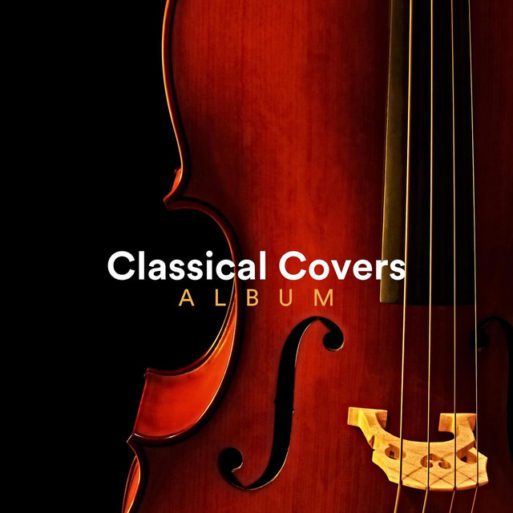 When asked to review “1,001 Classical Recordings You Must Hear Before You Die” (Gereral Editor Matthew Rye, Universe Publishing) I groaned after paging through the nine centuries of western music that laid before me. As someone who studied classical music and is probably more familiar with it than the average person (50% of my Ipod play lists are classical music), I stumbled on countless composers and pieces I had never heard of. How would someone with a more casual knowledge, the average person who likes some classical music and wants to expand their knowledge of it, deal with the encyclopedic range of this book?
When asked to review “1,001 Classical Recordings You Must Hear Before You Die” (Gereral Editor Matthew Rye, Universe Publishing) I groaned after paging through the nine centuries of western music that laid before me. As someone who studied classical music and is probably more familiar with it than the average person (50% of my Ipod play lists are classical music), I stumbled on countless composers and pieces I had never heard of. How would someone with a more casual knowledge, the average person who likes some classical music and wants to expand their knowledge of it, deal with the encyclopedic range of this book?
“How do you use words to describe music and have it mean anything to anyone who hasn’t already heard it?”
After reading many descriptions about different composers, their styles, individual pieces and the recommended performances, I realized how futile it is to try and verbally describe music. I saw some listings of some of my favorite performances of my favorite pieces of classical music and agreed with the verbiage describing it. And yet, if I wasn’t already familiar with the performance, I doubt that the description of it would mean anything to me. How do you use words to describe music and have it mean anything to anyone who hasn’t already heard it?
“It would be like describing sex to someone who has never had sex.”
I decided you can’t. It would be like describing sex to someone who has never had sex. It may sound like an intriguing experience, but until you did it (or heard the piece of music), you really would be none the wiser having only read the verbal description.
The first entry in this book is the original collection of 12th century Latin and German songs discovered at a Benediction monastery in southern Germany and called “Carmina Burana” (Songs of Buren) whose lyrics Carl Orff used in his oratorio by the same name written in 1936 (which is the Carmina Burana all people know). After sampling it on iTunes, it struck me again how far western music has evolved from its roots in medieval Europe to our modern age. Back to my comparison with sex, I don’t think you can say that procreation has evolved to such a degree. I wondered how the reader could wade through 1,001 pieces covering 900 years. I’m not sure someone who enjoys hearing classical music but can’t tell Vivaldi from Mozart would be able to find much direction.
“Back to my comparison with sex, I don’t think you can say that procreation has evolved to such a degree. I wondered how the reader could wade through 1,001 pieces covering 900 years.”
Mozart takes up 34 pages and it would take several days of nonstop listening to hear each recommended piece. And as great a composer as he was, there is a lot of Mozart I wouldn’t put on my iPod. Okay, I admit that I love all his opera overtures, but the few times I have seen a Mozart opera, I have been bored through most of it. Of course the Mozart that does make it onto my iPod is different from what the next classical music lover would choose and that is the wild card of personal taste. My recommendation of the first two Bach Partitas (played by Glen Gould, the deserved gold standard of performances) to someone who wants an introduction to Bach keyboard music would be different from someone else’s recommendation. And whose recommendation would be right or wrong? It’s all subjective.
Although with the advent of MP3‘s that can be sampled on the internet, it is interesting to see what each review that strikes your fancy is talking about by pulling up a minute or two of the piece in question. This may be like writing a movie review based on trailers, but you can at least see if you are at all interested in further listening. Their recommended Fritz Reiner recording of Bartok’s Concerto for Orchestra which was the introduction to Bartok I grew up listening to is one of my favorites. But there are some perfectly fine people who just won’t care for Fritz Reiner or Bartok.
While wading through the reviews, I was reminded of all the compositions (and composers) I have always wanted to become more familiar with, which I guess is the point of the book. I sometimes feel a bit ashamed to admit that I don’t have any of Beethoven’s late string quartets on my iPod. Oh well, I guess I can go to the iTunes store and find out if these gems of western music are a hole in my music collection after all, or if they just don’t do it for me. Sorry Ludwig, you can’t please all people all the time.
Related articles:
Check out the book on Amazon, 1,001 Classical Recordings You Must Hear Before You Die
- How Do You Use Words to Describe Classical Music? – It’s a conundrum when reading (rather than listening to) (sevenponds.com)
- The Amazing Benefits of Music Therapy (everydayhealth.com)

 How Do You Use Words to Describe Classical Music?
How Do You Use Words to Describe Classical Music?


 The Other Death in the Family
The Other Death in the Family

 The Healing Sound of Singing Bowls
The Healing Sound of Singing Bowls














